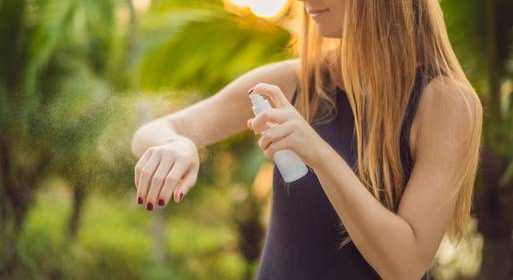Dear Dr Nina: Why do I react so badly to insect bites?

Q Insects seem to find me very attractive and every summer I end up being covered in bites. When other people get bitten, they seem to develop small lumps, but I react in larger weals that sometimes have fluid in them. Last year, I developed an infection, which my GP said was caused by scratching the bites. I have a repellent spray, but it doesn’t seem to be very effective. What else can I do to protect myself?
A Insects tend to bite for food or to protect themselves. The most common biting insects include, mosquitoes, ticks, horseflies and spiders. Some insect bites cause a small localised reaction, while others can cause serious systemic infection.
In cooler climates the risk of infection from bites is low (Lyme disease from ticks being the exception), whereas the closer you get to the equator, the risk of infection goes up. Serious infections associated with bites include, malaria, dengue fever, Zika virus, and Lyme disease.
We don’t fully understand why some people are more attractive to biting insects, or react more to the bites than others, but science has come up with a few suggestions why.
One study suggests that those with blood type O are more prone to bites than those with types A or AB blood. The amount of carbon dioxide we emit also attracts bugs.
Those who are overweight, exercising, have a higher core body temp or are pregnant emit more and this may be a target for biting insects. When we exercise we produce lactic acid, a substance which attracts bugs. Drinking alcohol seems to also attract bugs. The reason for this is a little less clear. Biting bugs are also attracted to darker clothes.
Taking the above factors in hand, it appears that in order to reduce the chance of bites you need to be blood group A or AB, sedentary, cool, avoid alcohol and wear light-coloured clothes. Clearly a pregnant woman going for a run at dawn or dusk wearing dark clothes would be a magnet for biting bugs. I say this tongue-in-cheek as many of these factors are beyond our immediate control, but acting on those you can may be of help.
Bugs do prefer to come out early morning or at night when wind is lower, and humidity higher, so avoid venturing out at dawn or dusk to reduce your chance of bites. Wear light-coloured close-woven fabrics and keep your skin covered at all times. Biting bugs find it hard to fly in wind, so sitting near a fan may also help keep them at bay.
Most importantly if you are prone to bites wear an insect repellent with a high level of DEET protection whenever you do venture out. The percentage of DEET may vary. The higher the DEET the longer the protection. A minimum concentration of 20pc should be used. There is no evidence that tea tree oil, vitamin B1 or B6, garlic and yeast extract, or plug-in buzzers repel insects in any way.
If you have been bitten and can see the stinger in situ, try and remove same by scraping sideways with a fingernail or credit card. Ticks should be removed in one piece with a sharp upward pull. Scratching a bite increases the chance of inflammation and irritation. The skin may then break, making infection a possibility.
Taking an over-the-counter antihistamine tablet may settle the rash and reduce irritation. Applying a cream with a mild steroid may also help. Infected bites do sometimes require antibiotic creams or tablets so if you are concerned a GP visit may be in order.
⬤ If you have any queries, email [email protected]
Source: Read Full Article